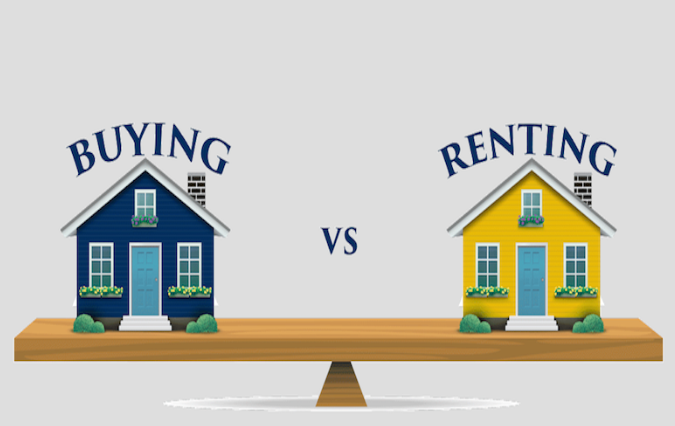Introduction:
The age-old debate of whether to buy or rent a house continues to perplex individuals as they navigate the complex world of real estate. Both options come with their own set of advantages and disadvantages, making it crucial for prospective homeowners to carefully evaluate their circumstances and preferences before making a decision. In this blog, we’ll explore the key factors to consider when deciding between buying and renting a house.
Financial Considerations:
One of the primary factors influencing the decision to buy or rent is the financial aspect. Buying a house involves a significant upfront investment, including a down payment, closing costs, and potential maintenance expenses. On the other hand, renting typically requires a security deposit and monthly rental payments. Prospective homeowners must weigh their financial stability, long-term goals, and the local real estate market’s conditions.
Equity and Investment:
Buying a house offers the opportunity to build equity over time, as mortgage payments contribute to ownership. Real estate has historically been considered a solid long-term investment, and homeownership allows individuals to benefit from potential appreciation in property values. Renting, however, does not provide this same opportunity for wealth accumulation. Those leaning towards buying should carefully analyze their financial goals and investment preferences.
Flexibility and Mobility:
Renting provides a higher degree of flexibility and mobility, making it an attractive option for those who anticipate changes in their career, family, or lifestyle. Renters can easily relocate without the burden of selling a property, while homeowners may face challenges in a fluctuating housing market. It’s crucial to assess your short-term and long-term plans to determine which option aligns with your lifestyle.
Maintenance and Responsibilities:
Owning a home comes with the responsibility of maintenance and repairs. While this can be a disadvantage for those with a hectic lifestyle, it also provides the freedom to customize and improve the property according to personal preferences. Renters, on the other hand, enjoy the convenience of having landlords handle most maintenance issues. Consider your comfort level with home maintenance tasks and your desire for personalization when deciding between buying and renting.
Market Conditions:
Local real estate market conditions play a pivotal role in the decision-making process. In some areas, buying may be more financially advantageous due to lower interest rates and favorable market trends. In contrast, high-demand rental markets may make renting a more sensible choice. Research the current market conditions and projections to make an informed decision based on your specific location.
Conclusion:
The decision to buy or rent a house is a deeply personal one, influenced by financial considerations, lifestyle preferences, and long-term goals. There is no one-size-fits-all answer, and individuals must carefully evaluate their unique circumstances before making this significant life choice. By weighing the pros and cons of each option, potential homeowners can navigate the housing dilemma and make a decision that aligns with their aspirations and values.
Social Links Widget
Click here to edit the Social Media Links settings. This text will not be visible on the front end.
Market Updates •
January 5, 2024
“Decoding the Housing Conundrum: A Comprehensive Guide to Choosing Between Buying and Renting”
by Tony Farah

Related Articles

 Facebook
Facebook
 X
X
 Pinterest
Pinterest
 Copy Link
Copy Link

